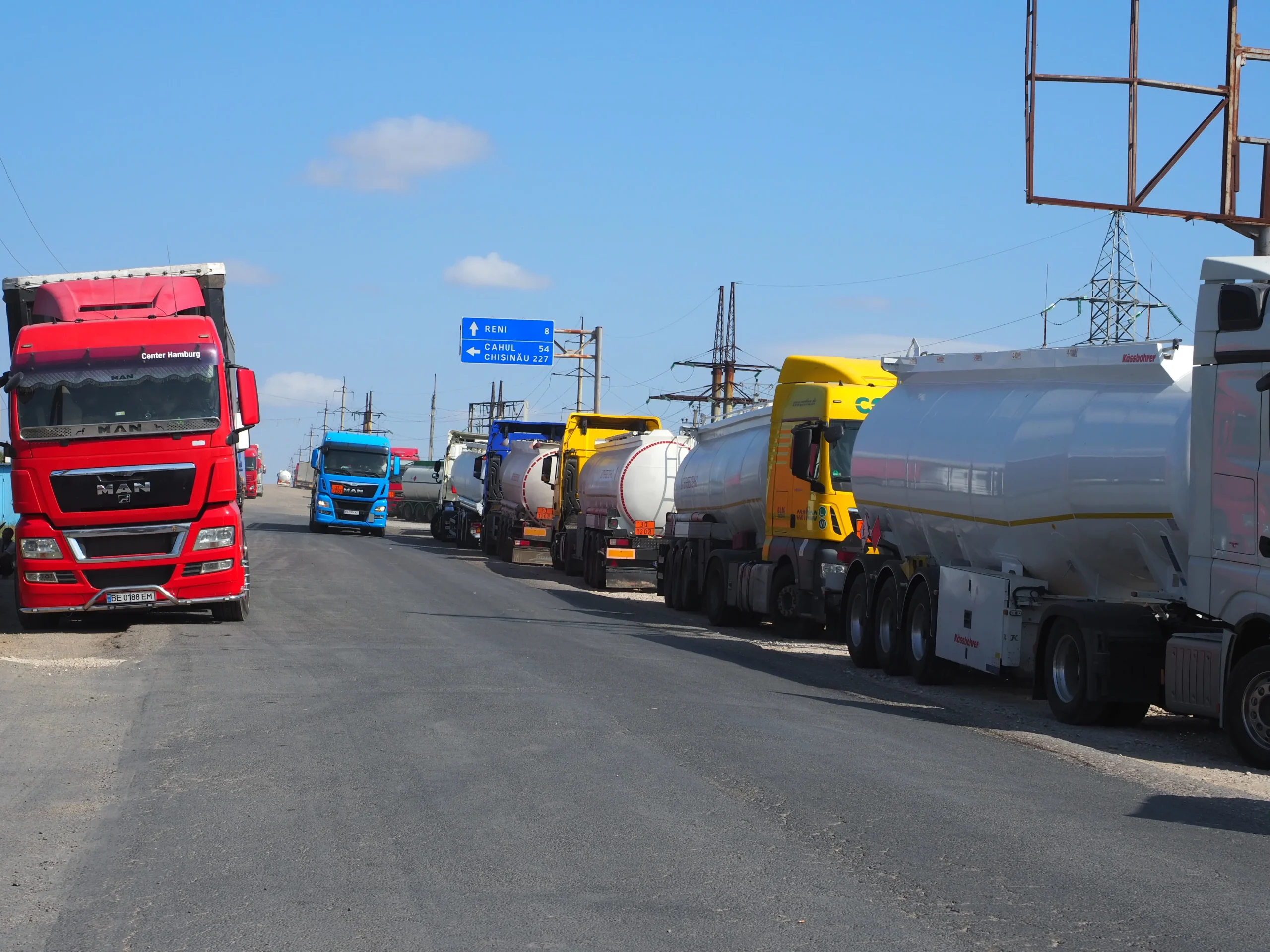
Moldova’s grain harvest is stuck in the global food bottleneck
Because of the Russian bombings, Ukrainians now export their massive grain stocks on land, a lot of it through Moldova. This created one of the biggest bottlenecks the Black Sea Region has seen.
Sunflowers make up 25% of all the cropped land in Moldova.
Sunflowers make up 25% of all the cropped land in Moldova. It’s become increasingly difficult for farmers to export sunflower seeds because of bottlenecks caused by the added pressure of Ukrainian truck drivers trying to export their country’s harvests through Moldova to ports in Romania.
On that mid-September day, we stood in the middle of a field in the North-East of Moldova. It was a big day for Alexei Micu, the founder of a Moldovan sunflower seed producer, eBio. He came to see his precious seeds be collected.
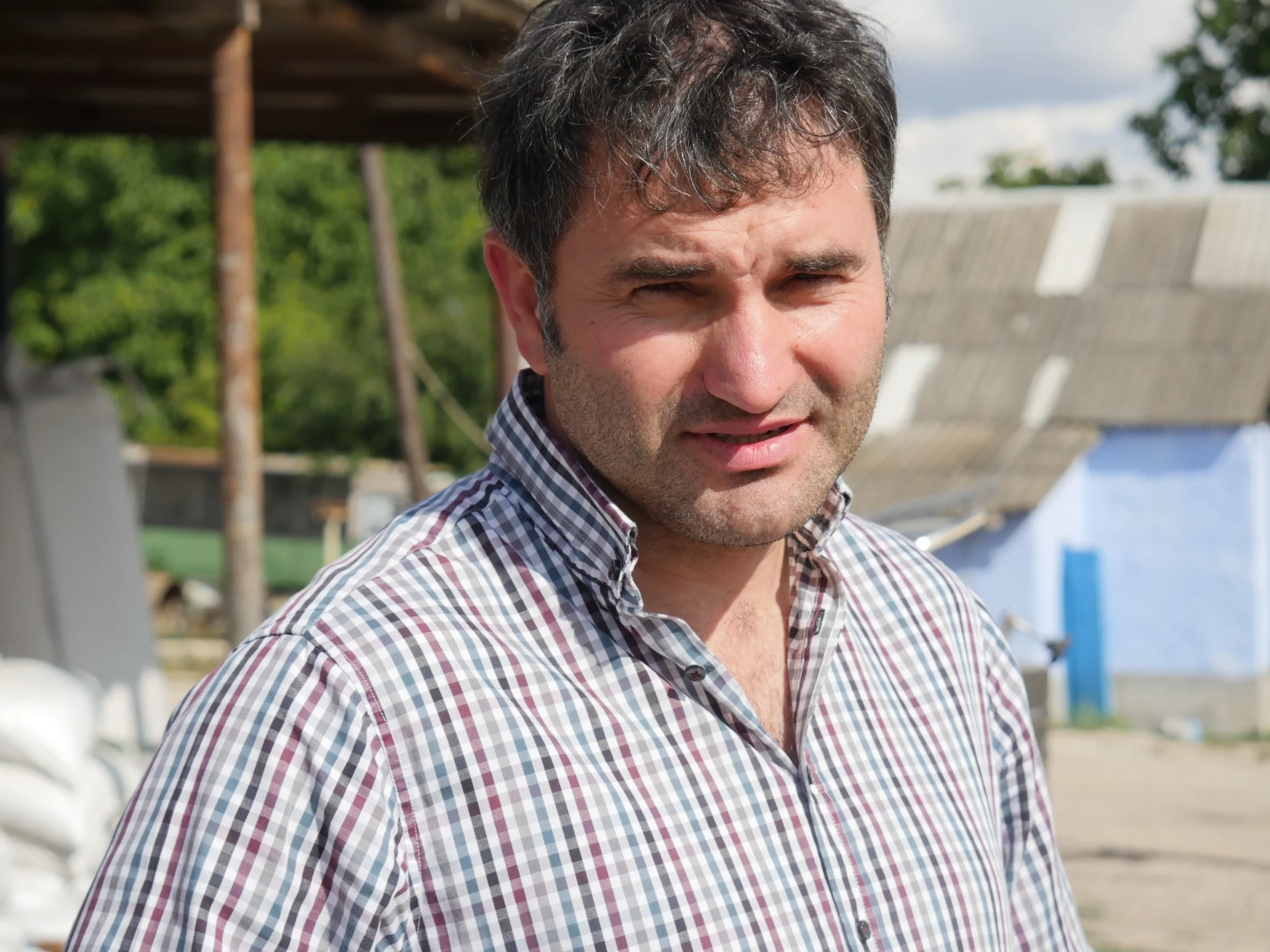
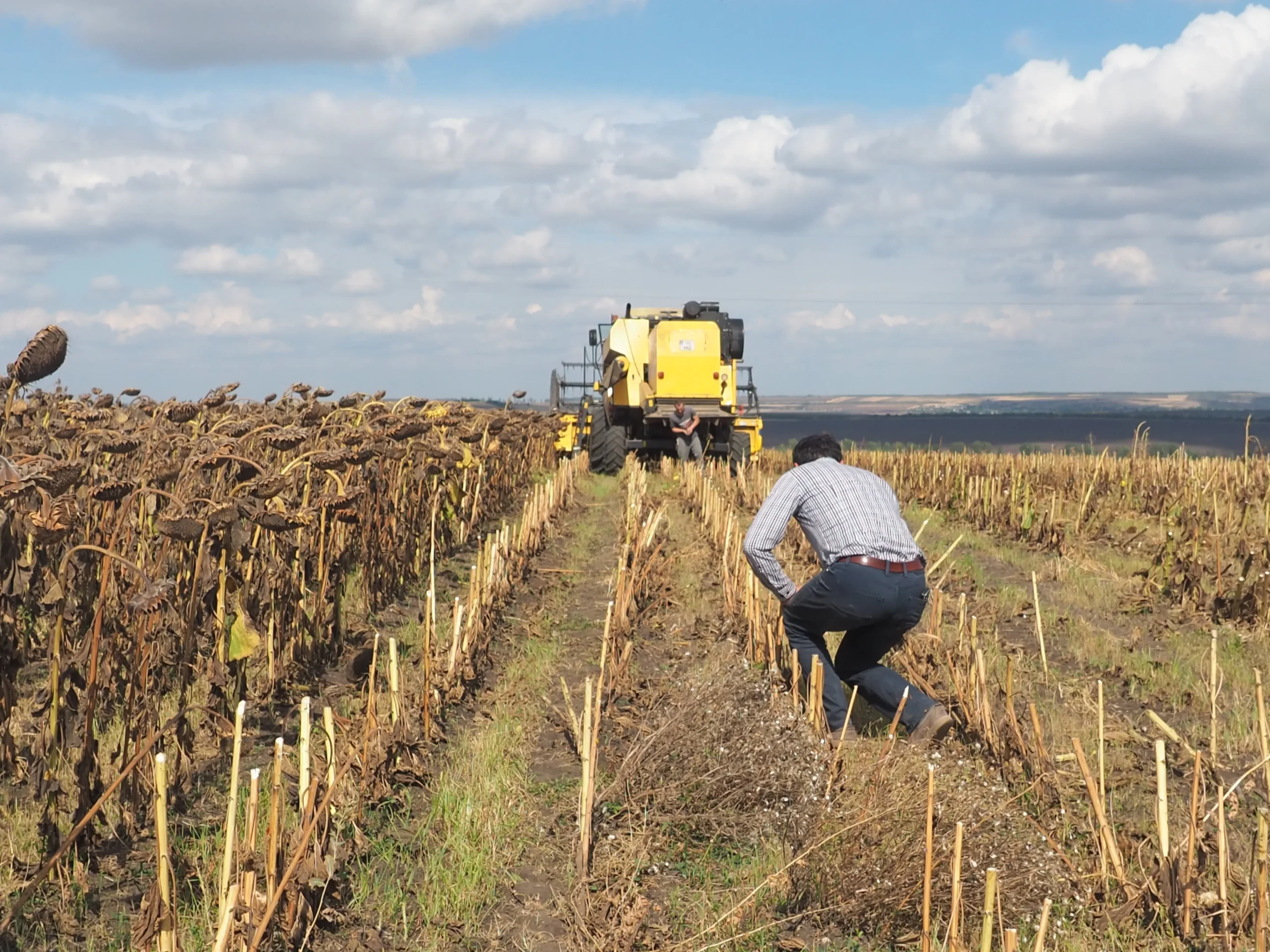
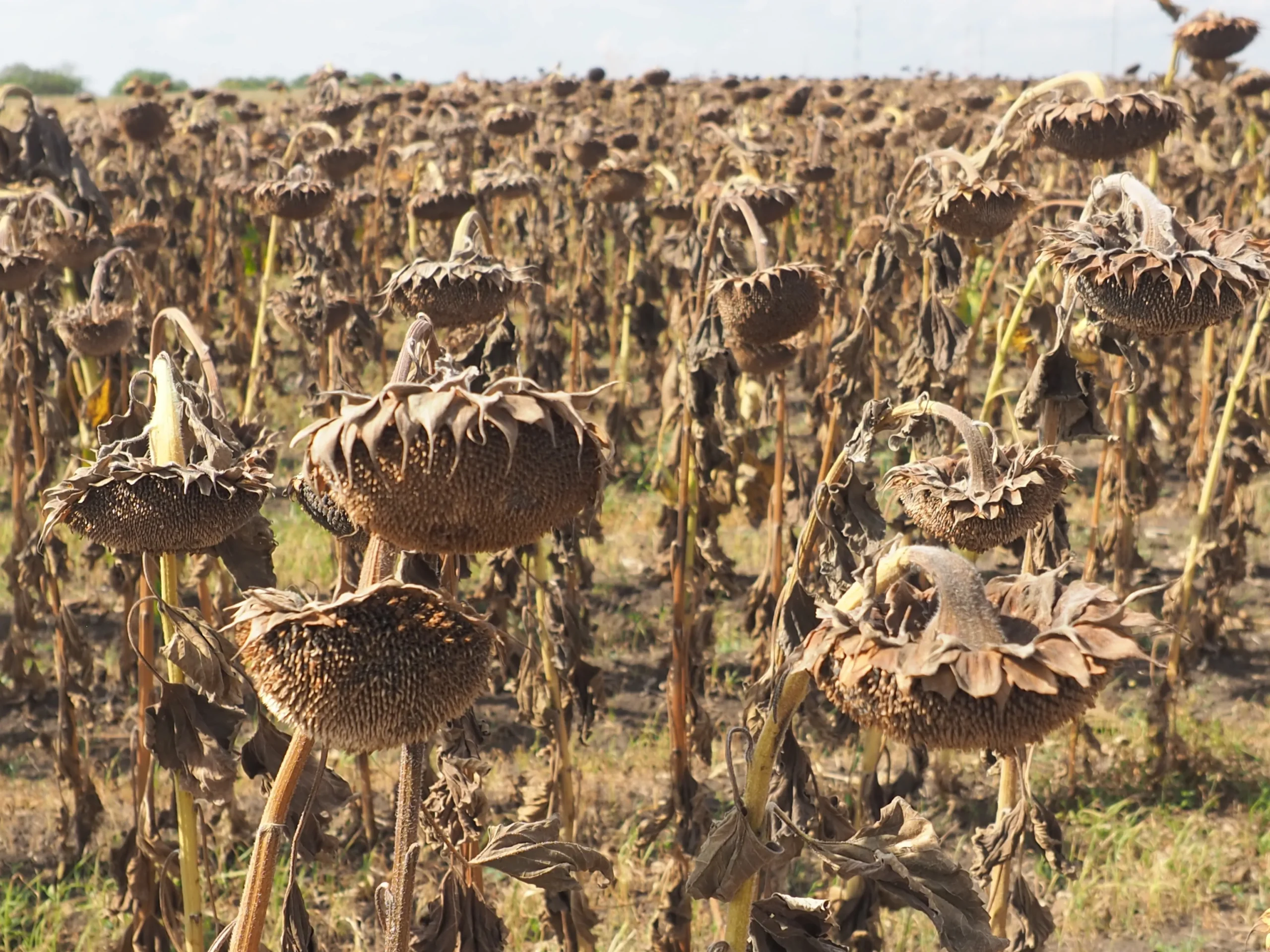
Growing sunflowers is incredibly demanding for the soil.
“Sunflowers extract essential nutrients, and for the next three years, the soil remains depleted,” said Micu, who grows twelve different seeds and crops. Conventional fertilizer-relying farmers harvest sunflowers from the same field every three to four years. To maintain the soil fertility, Micu waits for at least five, ideally up to eight years.
Farming in Moldova is becoming increasingly difficult, but not just here — in the Black Sea region.
The harvester roared across the field behind him as we spoke. Transitioning to chemical-free practices nearly ten years ago required more planning, but it paid off during tough times, Micu believes. In a typical farm, chemical fertilizers, fungicides, and herbicides account for nearly half the production costs and constantly increase, making farming more vulnerable to bankruptcy during difficult times. “We are more resilient to the changes brought by the war in Ukraine,” said Micu, whose precious seeds mostly end up in Italy.
Micu inspected the field when the harvester finished, rolling black pointy seeds between his fingers and tasting them. He reflected that it was not a bad year for growing sunflowers. But not a good one either. In an average year, one hectare yields two tons of seeds. The weather was great at the beginning of the year, but the summer brought severe drought.
At the same time, input costs, like energy, surge, and crop prices, drop.
Farming in Moldova is becoming increasingly difficult, but not just here — in the Black Sea region. Micu predicted that many would head toward bankruptcy in the coming years.
The flooded market
While wheat farmers once considered sunflower seeds gold, their value has plummeted as production costs soar. The price per ton, which used to hover around 500 euros, has plummeted to less than 300 euros. This dramatic shift can be attributed to Moldova’s neighbor, Ukraine, a major global sunflower seed producer, often called the “world’s breadbasket.” The ongoing war has disrupted seed processing in Ukraine, diverting much production to Moldova.
“The Ukrainians have substantial stockpiles from the last year’s harvest, too,” Micu explained. Consequently, the market is flooded. Moldova is a crucial transit point for Ukrainian agricultural products, including cereals, sunflowers, rapeseed, and derived oils.
Moldovan territory doesn’t only serve as a transit, though. There is also an oil processing factory operated by Trans-Oil, a company that dominates the market. They turn around 90 percent of the sunflower seeds into oil in Moldova. But not only. Moldovan farmers recently complained that Trans-Oil also imports sunflower seeds from Ukraine, increasing the prices for the local crop growers.
For Moldovans, it’s become harder to offload grain. Before, the cheapest way to transport grain was via the Black Sea, but the Russian threats are making it increasingly dangerous. Before the war, Ukrainian ports worked at full speed. Giant cargo ships took grain to Turkey and elsewhere. Now, a lot of transportation happens on land via trucks, bringing the logistics costs up.
The blockading of Black Sea trade routes has created bottlenecks in transit. To understand what was happening, we drove to Giurgiulesti, on the Southern border of Moldova.
Giurgiulesti port, a free economic zone, is one of the nearest international safe ports on the Danube River for Ukrainian crop exporters. Moldova, a landlocked nation, touches the river at its southernmost tip, converging with the Prut River.
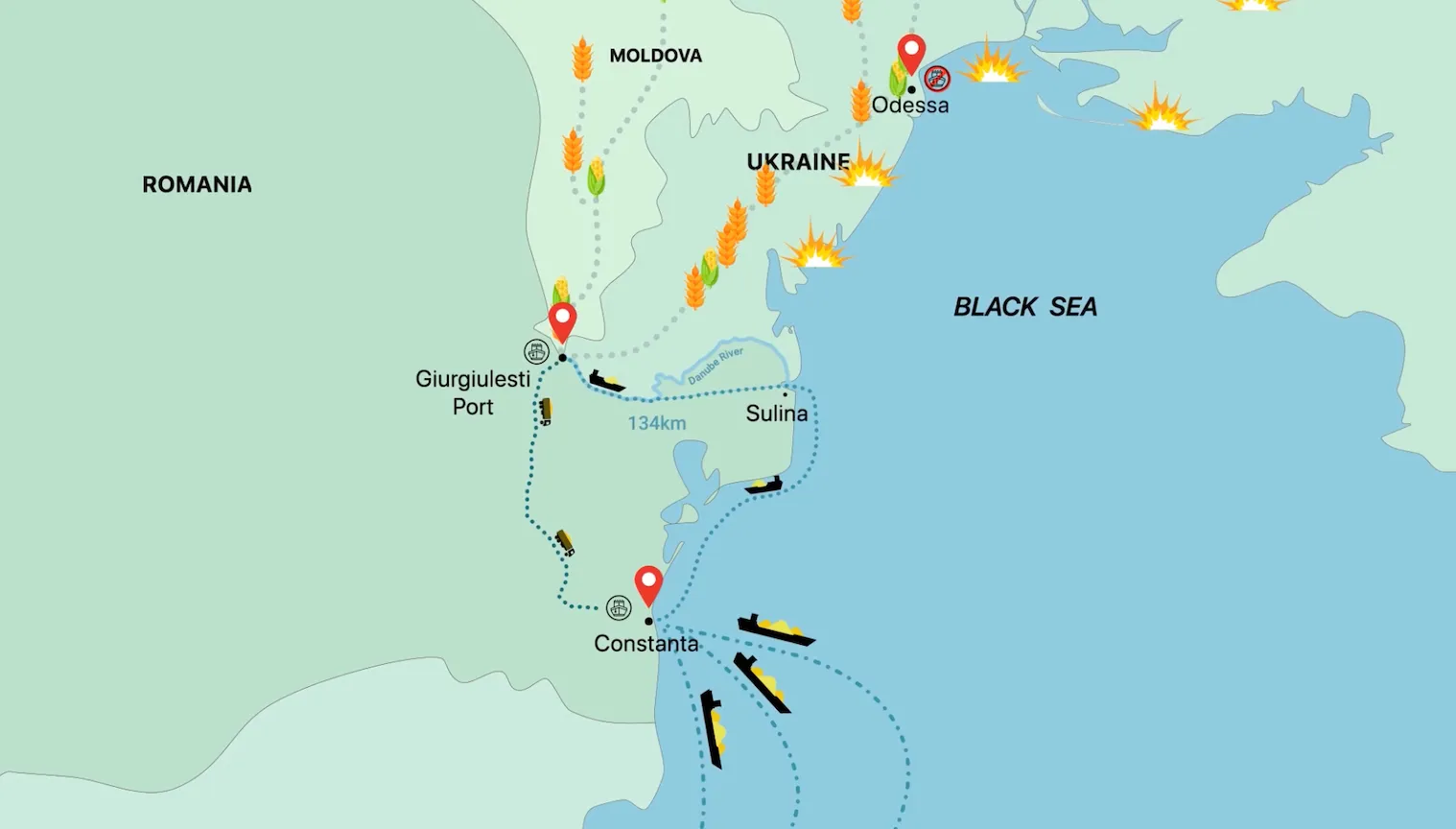
Six hundred meters in four days
We saw long rows of Ukrainian and Moldovan trucks waiting to cross into Romania. Hundreds of them! The drivers gathered by the road in groups, looking drained. Some sat silently on the grass; some shared food and spoke quietly. Many had traveled hundreds of kilometers from Ukraine, just to be stuck here. There are no parking areas or waiting facilities, the drivers told us. They then pointed towards the bushes they used for toilets and showed us the water canisters they brought for showers.
It’s unprecedented for the Giurgiulesti border crossing. In October only, 1307 loaded trucks crossed the Ukrainian-Moldovan border through Reni-Giurgiulesti, said Mailin Aasmäe, EU Border Assistance Mission to Moldova and Ukraine. And there is no end of the crisis in sight. The average waiting time has almost doubled since September, Aasmäe added, from 137 hours to 269.
“We’ve moved 600 meters in four days,” one of the Ukrainian truck drivers from Dnipro City told us. On average, the waiting time at the border is between five to seven days, according to the Moldovan Ministry of Economy.
The border guard station at Giurgiulesti toll is ill-equipped to handle such long queues. The Romanian customs only accept as many trucks as they can fit in their limited area, so most waiting happens on the Moldovan land.
“Nothing dangerous flies above our heads here,” a Ukrainian truck driver told us. “In Ukraine, no matter where we are in Ukraine, there’s always a lingering danger on the road.” Even the Moldovan port employees see the bombs blasting on the Ukrainian side, in the port of Reni, around ten kilometers away.
So, forming long lines on the Ukrainian side is unsafe for drivers. “They target areas with a high concentration of mobile phones,” Viorel Garaz, a State Secretary of the Ministry of Economic Development and Digitalization, explained. “So naturally, we let them cross the border to the Moldovan side.”
But the journey for these drivers doesn’t end here. They need to drive to Romania, to the port of Constanta, where the grain is taken to the large ships. Grigore Baltag, an economic analyst at the Moldovan Ministry of Agriculture, explained that over 90 percent of grain and oilseed transit through Moldova occurs in Giurgiulesti.
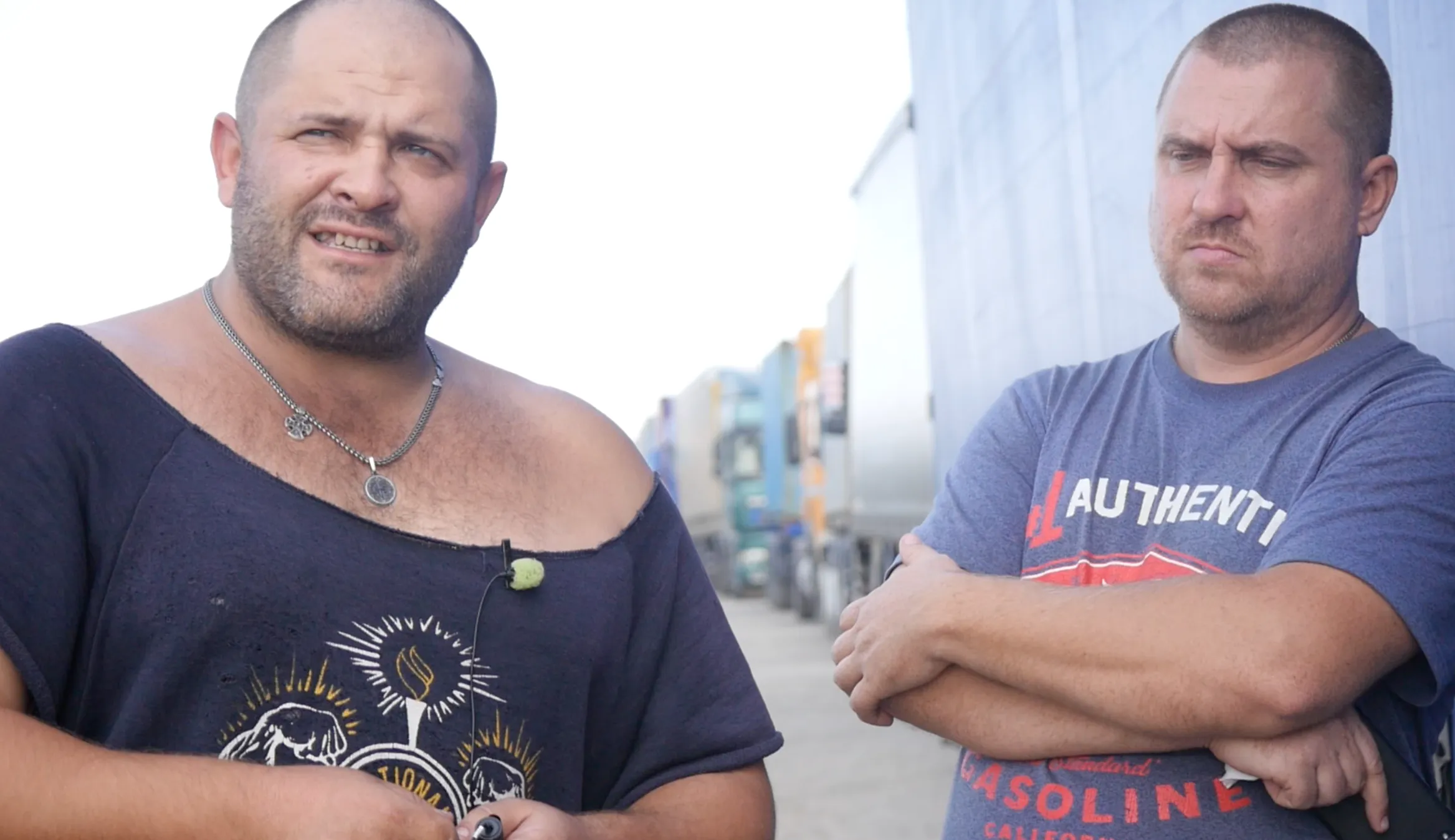
But here’s the problem, Garaz explained. The Romanian customs clearance only has limited space on their side of the border, so the drivers must wait in Moldova.
The Moldovan government is creating an electronic queue system connected to the Ukrainian and Romanian customs services to solve the crisis. It should be ready by May next year, at the earliest.
Meanwhile, the drivers in the line keep calling their relatives and hear about the bombings. So even if they must be stuck at the border for days, they are safe here.
Sources: Agroexpert Moldova, Newsmaker, CNN
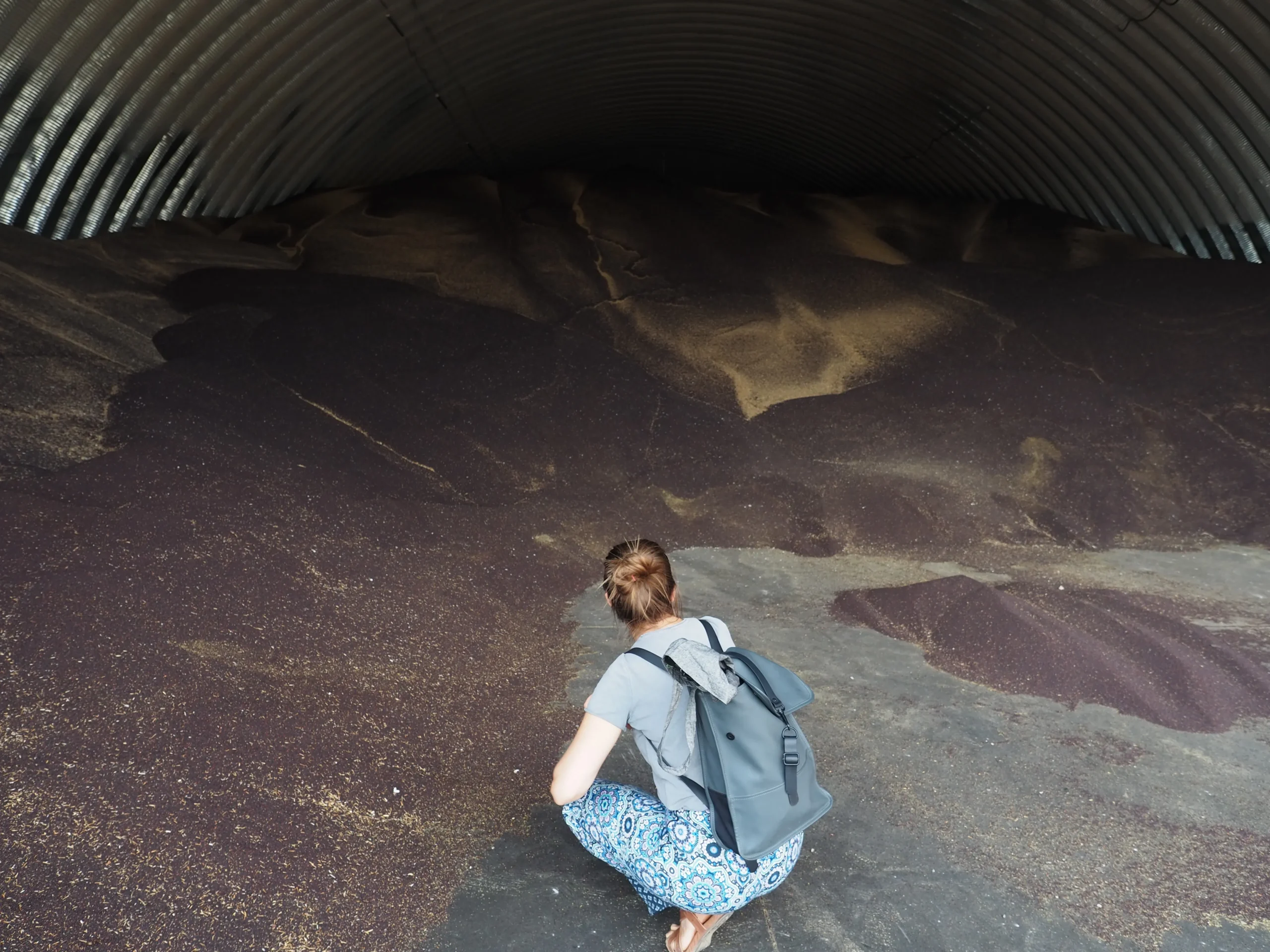


Leave a Reply